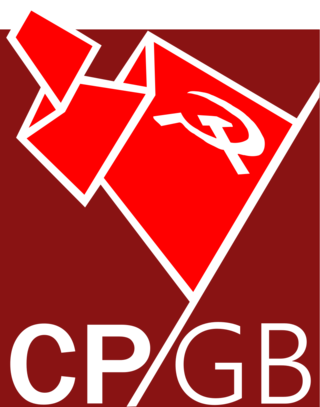
The Communist Party of Great Britain is a political group which publishes the Weekly Worker newspaper. The CPGB (PCC) claims to have "an internationalist duty to uphold the principle, 'One state, one party'. To the extent that the European Union becomes a state then that necessitates EU-wide trade unions and a Communist Party of the EU". In addition, it is in favour of the unification of the entire working class under a new Communist International. It is not to be confused with the former Communist Party of Great Britain, the Communist Party of Great Britain (Marxist–Leninist), or the current Communist Party of Britain.

The Communist Party of Canada is a federal political party in Canada. Founded in 1921 under conditions of illegality, it is the second oldest active political party in Canada, after the Liberal Party of Canada. Although it does not currently have any parliamentary representation, the party's candidates have previously been elected to the House of Commons, the Ontario legislature, the Manitoba legislature, and various municipal governments across the country.
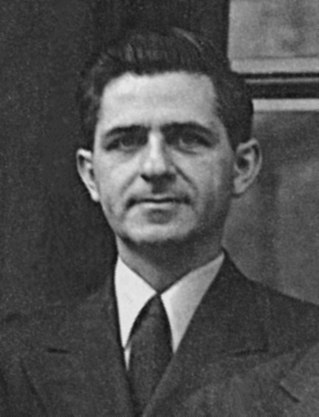
David Lewis was a Canadian labour lawyer and social democratic politician. He was national secretary of the Co-operative Commonwealth Federation (CCF) from 1936 to 1950 and one of the key architects of the New Democratic Party (NDP) in 1961. In 1962, he was elected as the Member of Parliament (MP), in the House of Commons of Canada, for the York South electoral district. While an MP, he was elected the NDP's national leader and served from 1971 until 1975. After his defeat in the 1974 federal election, he stepped down as leader and retired from politics. He spent his last years as a university professor at Carleton University and as a travel correspondent for the Toronto Star. In retirement, he was named to the Order of Canada for his political service. After suffering from cancer for a long time, he died in Ottawa in 1981.

The New Communist Party of Britain is an anti-revisionist Marxist–Leninist communist party in Britain. The origins of the NCP lie in the Communist Party of Great Britain from which it split in 1977. The organisation takes an anti-revisionist stance on Marxist–Leninism and is opposed to Eurocommunism. After the fall of the Soviet Union the party was one of two original British signatories to the Pyongyang Declaration in 1992. It publishes a newspaper named The New Worker.
There have been various groups in Canada that have nominated candidates under the label Labour Party or Independent Labour Party, or other variations from the 1870s until the 1960s. These were usually local or provincial groups using the Labour Party or Independent Labour Party name, backed by local labour councils made up of many union locals in a particular city, or individual trade unions. There was an attempt to create a national Canadian Labour Party in the late 1910s and in the 1920s, but these were only partly successful.

Miguel Figueroa is a Canadian political activist who was the leader of the Communist Party of Canada from 1992 to 2015. He is known for the landmark Figueroa case, which redefined the role of small parties and Canadian Parliamentary democracy, as well as his role re-establishing the Communist Party of Canada in the post-Soviet era.

Timothy Buck was the general secretary of the Communist Party of Canada from 1929 until 1962. Together with Ernst Thälmann of Germany, Maurice Thorez of France, Palmiro Togliatti of Italy, Earl Browder of the United States, and Harry Pollitt of Great Britain, Buck was one of the top leaders of the Joseph Stalin-era Communist International.
The League for Socialist Action (LSA) was the premier Trotskyist organization in Canada for much of the 20th century. Throughout its history the LSA went through many different names and iterations. In chronological order it was known as: the International Left Opposition (Trotskyist) of Canada, the Workers Party of Canada, the Socialist Policy Group, the Socialist Workers League, the Revolutionary Workers Party, The Club, the Socialist Education League, and the League for Socialist Action.

William Kashtan was the general secretary of the Communist Party of Canada for 23 years beginning in January 1965, several months following the death of Leslie Morris, until his retirement in 1988. The delay in his assuming of the position was due to the opposition of Tim Buck to his appointment.
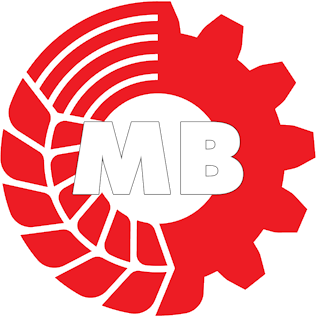
The Communist Party of Canada – Manitoba is the provincial wing of the Communist Party of Canada for the province of Manitoba. Founded in 1921, it was an illegal organization for several years and its meetings were conducted with great secrecy. Until 1924, the "Workers Party" functioned as its public, legal face. For a period in the 1920s, the party was associated with the Canadian Labour Party. After 1920 it attracted former members of radical and syndicalist groups such as the Industrial Workers of the World (IWW). Many of the new members were Jews, Finns or Ukrainians who supported the Russian Revolution.

Elizabeth Rowley is the current leader of the Communist Party of Canada. A long-time politician, writer, and political activist, Rowley served as a school trustee in the former Toronto borough of East York. Before becoming leader of the Communist Party of Canada, Rowley was leader of the Communist Party of Ontario. She has been a member of the Central Executive of the Communist Party of Canada since 1978 and has campaigned for office many times at the municipal, federal and provincial levels. Rowley was elected the leader of the Communist Party of Canada by the party's Central Committee in January 2016, following the retirement of Miguel Figueroa. She is the first female leader of the Communist Party of Canada.

The Young Communist League of Canada (YCL-LJC) is a Canadian Marxist–Leninist youth organization founded in 1922. The organization is ideologically aligned with, but organizationally independent from, the Communist Party of Canada. The organization's members played a leading role in the On-to-Ottawa Trek and made up a significant portion of the Mackenzie–Papineau Battalion, which fought on the Republican side in the Spanish Civil War.
Beresford (Berry) Richards was a politician in Manitoba, Canada. He served in the Legislative Assembly of Manitoba from 1943 to 1949. Elected as a candidate of the Cooperative Commonwealth Federation, he was twice expelled from that party during his tenure in the legislature.
The Communist Party of Canada (Marxist-Leninist) (CPC-ML) fielded 71 candidates in the 2006 federal election. Some of these candidates have their own biography pages. Information about others may be found here.

Socialism in Canada has a long history and along with conservatism and liberalism is a political force in Canada.

George Hara Williams was a Canadian farmer activist and politician.

The Communist Party of Quebec is a provincial political party in Quebec. It is affiliated with, but officially independent from, the Communist Party of Canada (CPC). The PCQ-PCC publishes the newspaper Clarté.
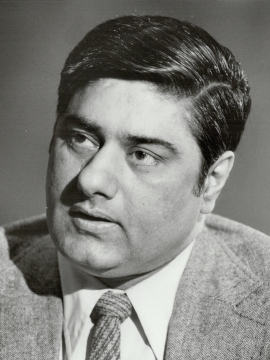
Hardial Bains was an Indian-Canadian microbiology lecturer and the founder of a series of left-wing movements and parties foremost of which was the Communist Party of Canada (Marxist–Leninist). Presenting himself as a staunch anti-revisionist Marxist-Leninist until his death, Bains acted as the spokesperson and ideological leader of the CPC(M-L) – known in elections as the Marxist–Leninist Party of Canada. During his lifetime, Bains's outlook was initially heavily influenced by Maoism until the Sino-Albanian split, where he then became closely aligned with Hoxhaism and the government of the People's Socialist Republic of Albania. Shortly before he died, abandoning his previous sharp criticisms of both countries, Bains supported both Cuba and North Korea. Spending most of his life in Canada, Bains was also politically active in England, Ireland, United States, and India.
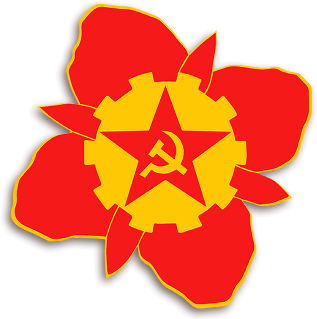
The Communist Party of Canada (Marxist–Leninist) is a federal political party in Canada. It was founded in 1970 by Hardial Bains, a staunch Stalinist and anti-revisionist. The CPC (M-L) has been registered with Elections Canada as the Marxist–Leninist Party of Canada (MLPC) since 1974, as the party is prohibited from using the name "Communist Party of Canada" in Canadian elections to avoid confusion among voters. The party is not an offshoot of the Communist Party of Canada; its early membership came from student-led organizations active in the 1960s. After a period of alignment with Maoism and China, the CPC (M-L) pursued a Hoxhaist, pro-Albanian line until the early 1990s. At present, the party directs most of its public support to Cuba and North Korea.

The Communist Party of Italy (Marxist–Leninist) was a political party in Italy. It was at one time Italy's largest Maoist group, until it changed affiliation and sided with Albania.















